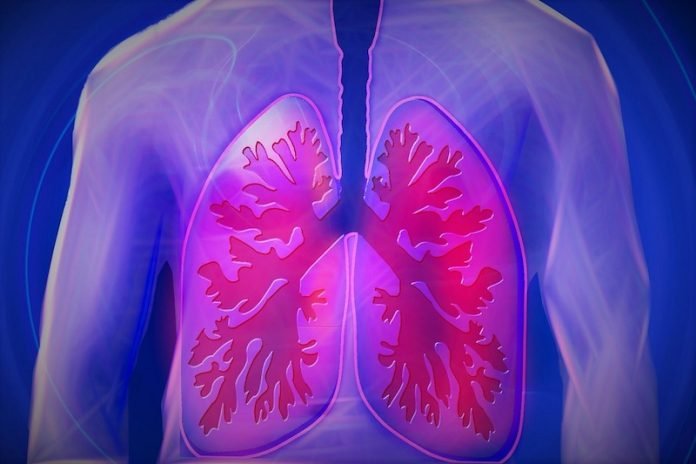
In a new study, researchers reported new discovery of distinct lung cancer pathways.
The finding may lead to more targeted treatments for lung cancer.
The research was conducted by a team from Mayo Clinic’s Florida campus.
Known for its poor prognosis, lung adenocarcinoma is the most common type of lung cancer, responsible for about 40% of lung cancer diagnoses.
In the study, the team distinguished between two pathways where this deadly cancer can develop.
They focused on the molecular features of lung adenocarcinoma in mice and found two ways that this cancer can develop.
The first way depends on the cancer-causing gene known as “protein kinase C iota (PKCiota).”
The second pathway, identified as the “Wnt/Beta-catenin signaling pathway,” was found to operate independently of PKCiota.
Lung adenocarcinomas that stem from the two different pathways were also found to form in different regions of the lung and through different cells of origin.
The researchers revealed the two pathways in mice, and then they considered how their discovery may apply to people.
To begin, they compared the pathways in the mouse model to the six known molecular subtypes of this cancer in humans.
The team found a molecular marker that allowed them to predict which human lung adenocarcinoma cells originated from the PKCiota-independent pathway that they’d discovered in mice.
The researchers say the ability to identify the specific pathway by which a patient’s lung adenocarcinoma came about increases our ability to predict which patients are likely or unlikely to benefit from a particular treatment.
This may offer alternative options to patients whose cancer subtype is unlikely to respond.
This work builds on previous efforts by the team, who were the first to discover the connection between PKCiota, and the initiation, promotion, and spread of lung cancers.
One author of the study is Alan Fields, Ph.D., a cancer biologist.
The study is published in Cancer Cell.
Copyright © 2019 Knowridge Science Report. All rights reserved.



